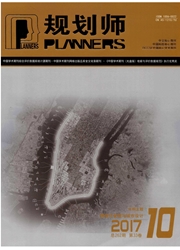

 中文摘要:
中文摘要:
传统城镇体系规划过于关注物质空间布局,忽略了人的发展诉求,并且指导范围往往局限于城镇自身,忽视了对乡村地区发展的指导,使其难以有针对性地解决城镇化过程中产生的社会生态问题。研究采用社会生态学视角,通过探索劳动力产需平衡等规律,构建以城镇化区域分类引导为核心、以小城镇发展和非农就业指引为重点、以城乡公共服务设施和基础设施创新配置为保障的城镇体系规划的社会生态学理论框架,并以日照市域城镇体系规划为例进行实践,对新型城镇化背景下城镇体系规划理论的发展进行有益的探索。
 英文摘要:
英文摘要:
Traditional urban planning system overweighs physical layout and neglects human needs. Its work focuses on town area and overlooks rural development, which leaves socio-ecological problems unresolved. From socio-ecological viewpoint, the paper studies the rule of demand-supply balance, establishes a zoning guidance centered, small town and non-agricultural employment guidance prioritized, public service and infrastructure guaranteed socio-ecological theory structure in urban system planning. The theory is implemented in Rizhao urban system planning.
 同期刊论文项目
同期刊论文项目
 同项目期刊论文
同项目期刊论文
 期刊信息
期刊信息
